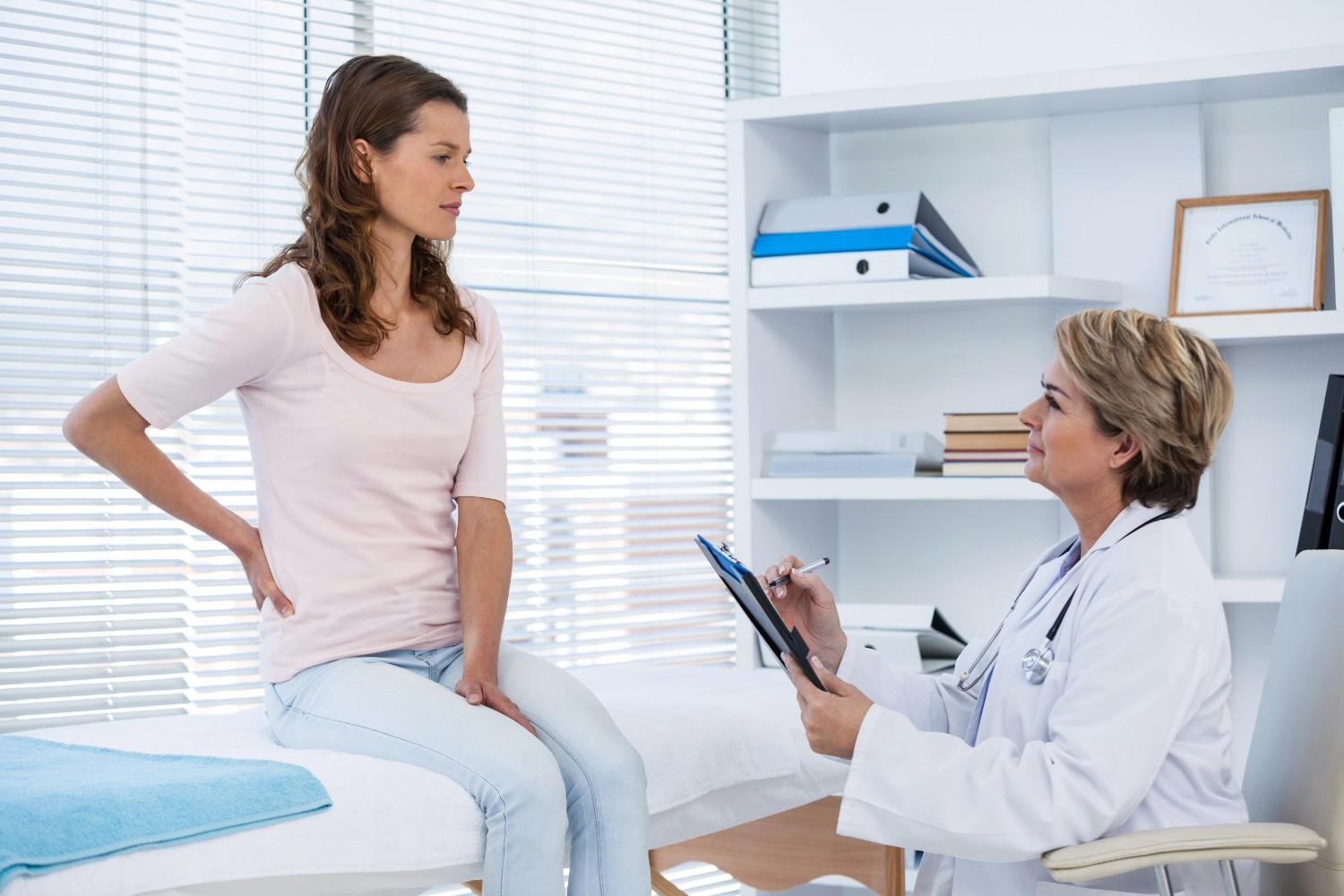Understanding Pelvic Pain and Pelvic Inflammatory Disease: What You Need to Know

Fast, Convenient Care
Same-day appointments and walk-in availability to provide quick and accessible care for urgent health concerns.
Accurate Diagnosis
On-site evaluations and diagnostic testing ensure a precise diagnosis and immediate treatment for your health condition.
Specialized Women’s Health Care
Compassionate, expert care for women’s health issues, from pelvic pain concerns, tailored to your needs.
Comprehensive Treatment Options
Safe, effective treatments for a variety of conditions, including medications and minor in-clinic procedures.

Women’s health encompasses a wide range of medical conditions and concerns, with gynecology playing a critical role in maintaining overall well-being. Gynecology focuses on the female reproductive system, including the uterus, ovaries, and vagina, as well as conditions that may arise within this area. One of the most common yet often under-discussed health issues many women face is pelvic pain.
How NextGen Primary Care
Clinica Hispana Walk-in
Clinic & Urgent Care Can Help
At NextGen Primary Care, we are dedicated to providing timely and comprehensive care for women’s health issues, including PID. Here’s how we can help:
How Can Minor Pelvic Pain Be Treated?

Minor Pelvic Pain in the Non-Pregnant Patient
What is Minor Pelvic Pain?
Minor pelvic pain refers to discomfort experienced in the lower abdomen or pelvis in non-pregnant women. This type of pain can either be occasional or persistent and varies in severity. It is important to recognize that while some degree of pelvic pain is normal, especially during menstruation, chronic or severe pain should be evaluated by a healthcare provider.
The Importance of Addressing Pelvic Pain Early
Pelvic pain can be a sign of a variety of conditions, from menstrual cramps to more serious issues like endometriosis or pelvic inflammatory disease. Early detection and treatment are vital to prevent complications and improve quality of life. Left untreated, chronic pelvic pain can worsen, affecting daily activities, mental health, and reproductive function. Seeking medical attention as soon as pelvic pain occurs can help identify the underlying cause and prevent the pain from becoming a long-term issue.
Prevention of Chronic Pain
Early diagnosis and treatment can prevent the condition from becoming chronic, leading to long-term pain.
Improved Quality of Life
Addressing pelvic pain early can help maintain a woman’s ability to engage in normal daily activities without discomfort.
Avoidance of Complications
Timely intervention can prevent complications that may affect fertility or lead to more severe health issues.

Pelvic Inflammatory Disease (PID)
Minor Pelvic Pain:
These facts help highlight the importance of early detection and treatment, whether you’re dealing with minor pelvic pain or a more serious condition like PID.
Pelvic Inflammatory Disease (PID): What You Need to Know
What is PID?
Pelvic Inflammatory Disease (PID) is a serious infection that affects the reproductive organs, including the uterus, fallopian tubes, and ovaries. This condition is often caused by untreated sexually transmitted infections (STIs), such as chlamydia or gonorrhea. PID can develop when bacteria from these infections spread from the cervix to the upper reproductive tract, causing inflammation and infection.

How NextGen Primary Care & Can Help
At NextGen Primary Care, we understand the challenges of dealing with pelvic pain. Our team is committed to providing prompt, comprehensive care for all of your health concerns. We offer:
Same-day appointments
And walk-in availability, so you can receive care when you need it most.
Thorough evaluations
To help identify the cause of your pelvic pain, including physical exams and diagnostic tests
Effective treatment options
From medications to lifestyle recommendations, to help you manage and alleviate your symptoms.
Compassionate care
Tailored to meet your unique health needs.
If you’re experiencing pelvic pain, don’t wait to get the help you need. Visit NextGen Primary Care today for fast and reliable care!
Key Facts About Minor Pelvic Pain and Pelvic Inflammatory Disease (PID)
Minor Pelvic Pain:
How Common is Pelvic Pain?
Pelvic pain is a widespread issue affecting many women, including those who are not pregnant. It is often dismissed or normalized as a part of the menstrual cycle, but persistent or severe pelvic pain should not be ignored. According to studies, up to 1 in 4 women experience pelvic pain at some point in their lives. Whether it’s occasional discomfort or ongoing pain, it’s essential for women to recognize the importance of discussing these symptoms with their healthcare providers. Ignoring pelvic pain can lead to missed opportunities for treatment and potential complications that could have been prevented with early intervention.
By addressing pelvic pain early, women can ensure their reproductive health is properly managed and prevent the development of more serious, long-term issues. Don’t let pelvic pain go unaddressed—talk to a gynecologist to understand what might be causing your discomfort and how it can be treated effectively.

Patient Testimonials
At NextGen Primary Care, our patients are at the heart of everything we do. We’re deeply grateful for the trust they’ve placed in us, and we’re honored to hear about the positive experiences they’ve had with our compassionate care, quick service, and dedicated team. Here’s what a few of our patients have shared about their time with us:
Contact Us
At NextGen Primary Care, we understand the importance of accessible healthcare, which is why we offer convenient hours and flexible scheduling. Our clinic is here to serve you, whether you need urgent care, primary care, or specialized treatment.
Address
6306 Gulfton St #203,
Houston, TX 77081
Consultation Schedule
Mon – Wed: 9:00AM – 7:00PM
Thu – Fri: 9:00AM – 6:30PM
Sat: 9:00AM – 4:30PM
Get in Touch
Phone: 281-888-7289
Email: info@nextgenpcp.com
Follow Us
Take Charge of Your Heart Health Today!
Pelvic pain is a common issue that many women experience, and in most cases, it’s minor and treatable. Conditions like menstrual cramps, ovulation pain, or urinary tract infections (UTIs) may cause occasional discomfort, but with proper care, they are usually manageable. However, it’s important to understand that pelvic pain can sometimes be a sign of a more serious condition, such as Pelvic Inflammatory Disease (PID), which can have long-term, potentially life-threatening effects if left untreated. Early intervention is key to preventing complications like infertility, chronic pain, or ectopic pregnancy.
Why Prompt Attention Matters
• PID can cause irreversible damage: Left untreated, PID can lead to chronic pelvic pain, infertility, or complications in future pregnancies. Immediate medical attention is essential to avoid these risks.
• Don’t wait for symptoms to worsen: If your pelvic pain is persistent, severe, or accompanied by other concerning symptoms like unusual discharge, fever, or painful urination, it’s important to seek care right away. Early diagnosis ensures that you receive the appropriate treatment before the condition worsens.
Don’t Wait—Take Action for Your Health
If you’re experiencing pelvic pain, don’t wait for symptoms to get worse. The sooner you seek medical attention, the sooner you can begin treatment and prevent potential complications. NextGen Primary Care is here to help with compassionate, timely care.
Contact Us Today!
Call us or visit us in person—our clinic is ready to serve you with same-day appointments and walk-in availability. Your health is our priority, and we’re here to provide the support you need to feel better quickly.














